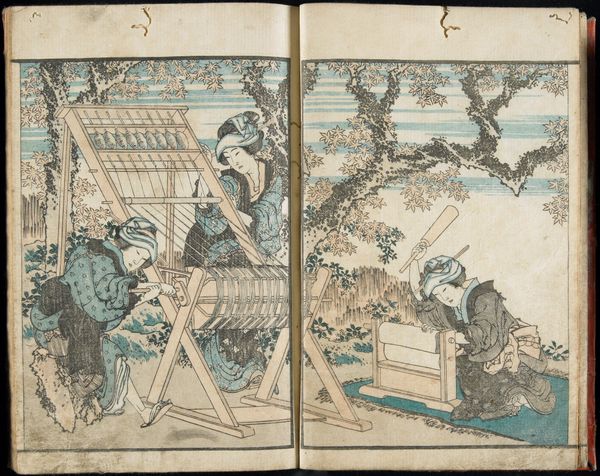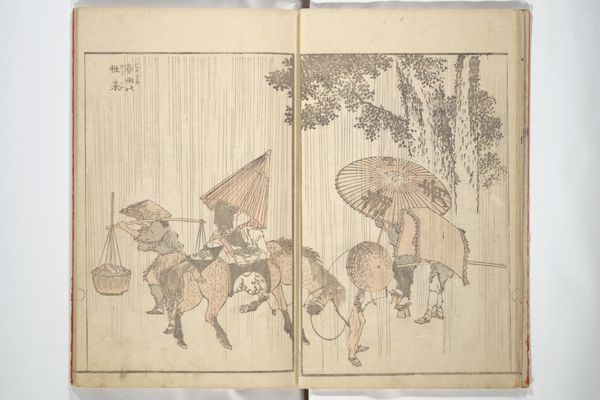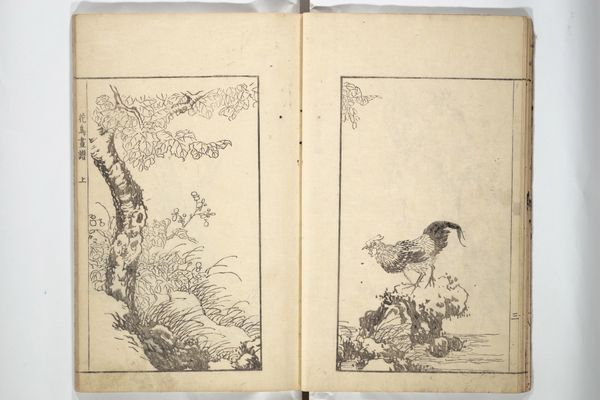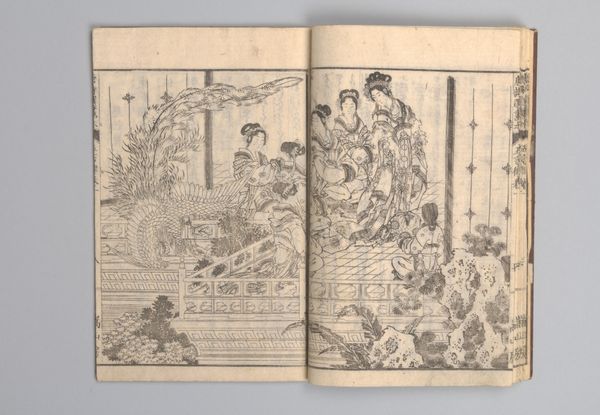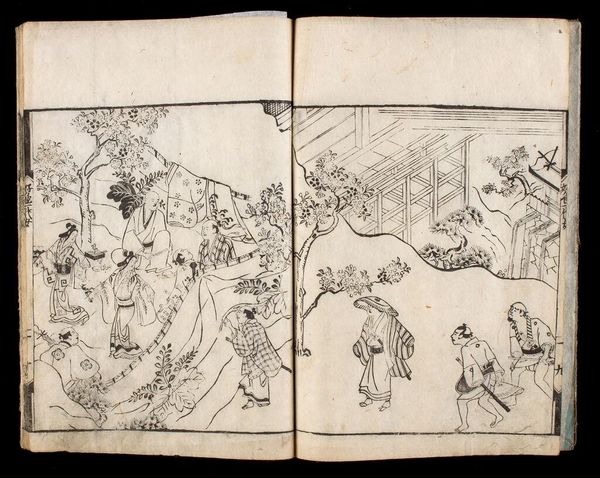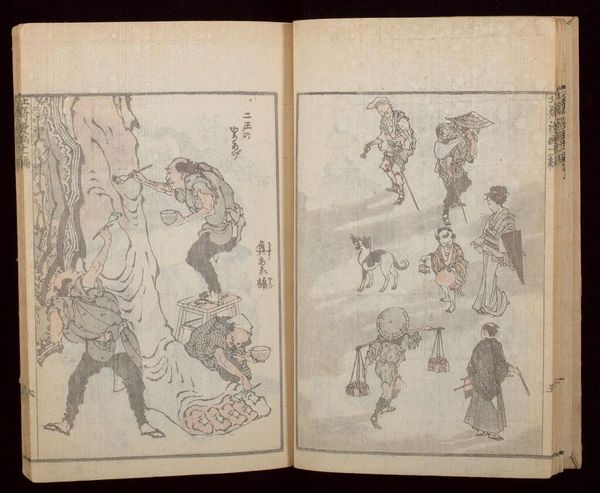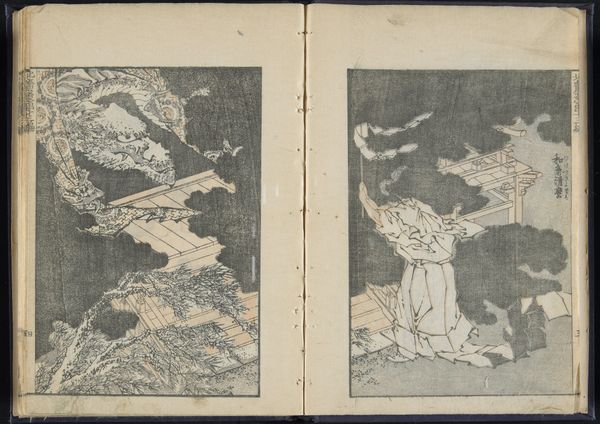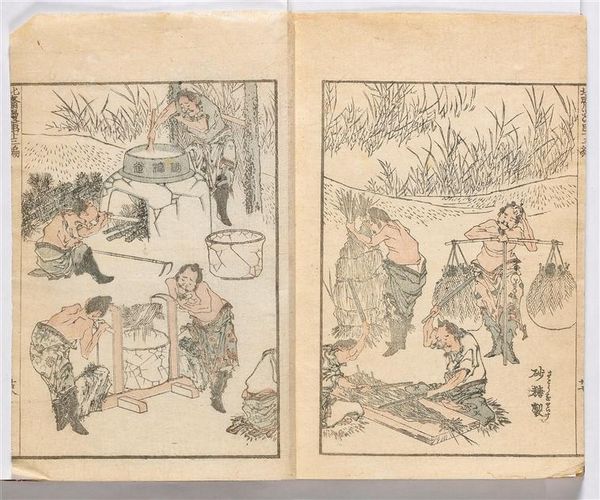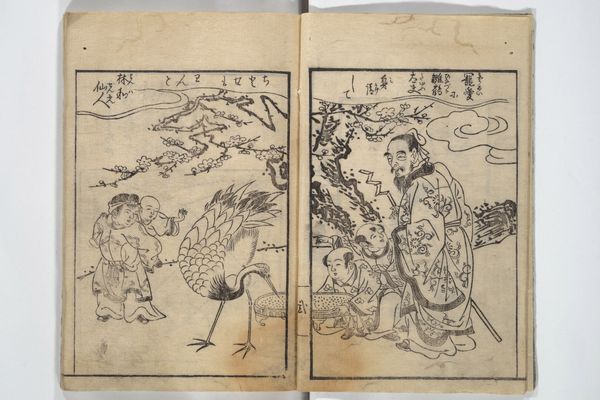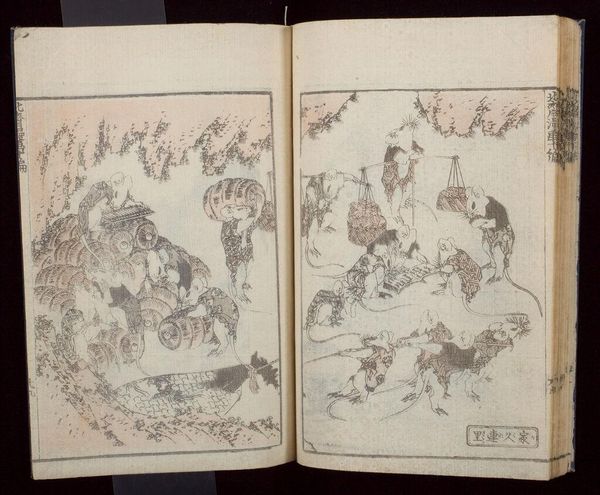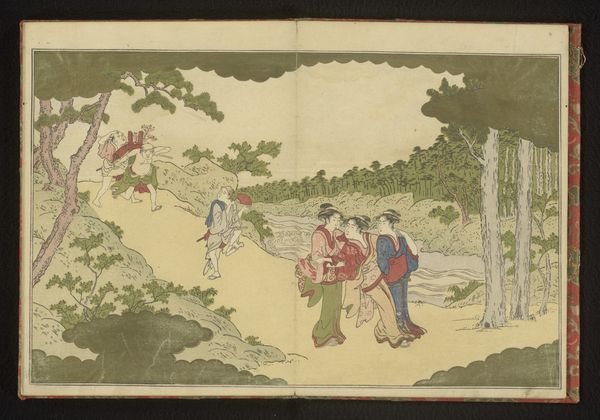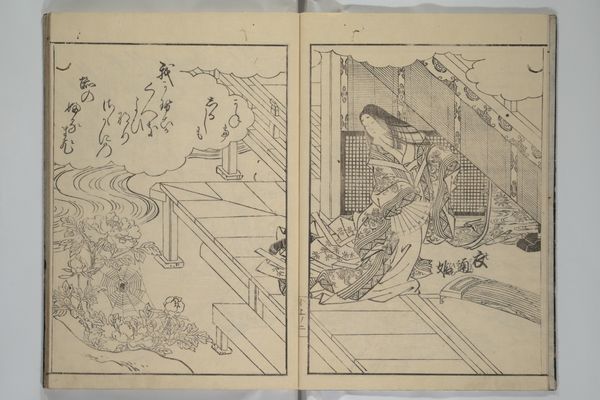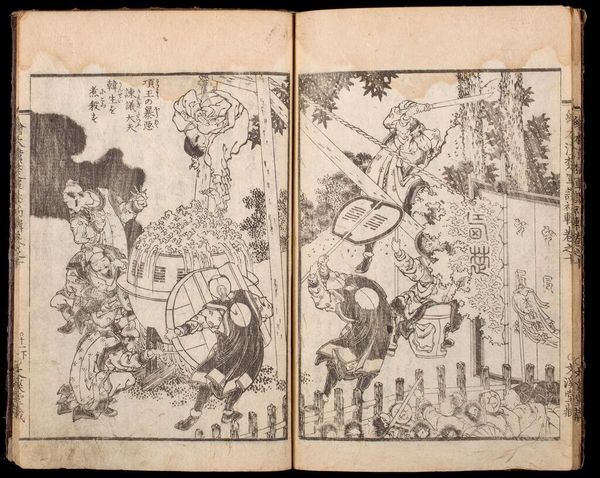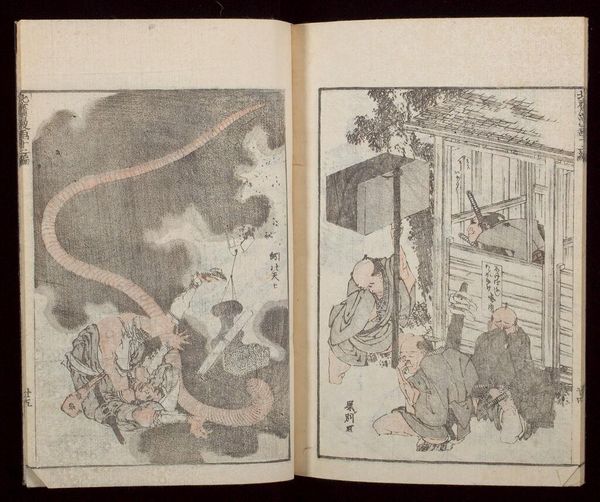
Transmitting the Spirit and Revealing the Form of Things- Hokusai's Sketchbooks c. 1849 - 1878
0:00
0:00
drawing, print, ink, color-on-paper
#
portrait
#
drawing
#
pen drawing
# print
#
pen sketch
#
book
#
asian-art
#
sketch book
#
landscape
#
ukiyo-e
#
japan
#
personal sketchbook
#
ink
#
color-on-paper
#
pen-ink sketch
#
pen work
#
sketchbook drawing
#
watercolour illustration
#
sketchbook art
#
watercolor
Dimensions: 9 1/4 x 6 7/16 x 1/2 in. (23.5 x 16.3 x 1.2 cm)
Copyright: Public Domain
Curator: Here we have a glimpse into the creative mind of Katsushika Hokusai, from his sketchbooks, dating roughly from 1849 to 1878. These ink and color-on-paper drawings now reside in the Minneapolis Institute of Art. What are your initial impressions? Editor: There’s a playful strangeness that immediately draws me in! The juxtaposition of the figures and the camel-like creature is unexpected, and strangely… humorous? It’s as if I’ve stumbled into someone’s very quirky dream. Curator: Indeed. Hokusai’s sketchbooks provide invaluable insight into the material process of his artistic development. Ukiyo-e prints often went through multiple workshops. The sketchbook gave him freedom of experimentation and private commentary. We see both his acute observation and fantastical invention coexisting on these pages. Editor: It makes you wonder, doesn’t it, about the labour and communal aspect of art creation? You get a sense of his individual exploration and vision but think, too, of the workshops. The contrast between solitude and collective creation is a big question for the life of the artist. I mean, look at the mark-making on the camel. Such precision and fluidity in the pen work – the product of rigorous training and dedicated practice. Curator: Absolutely, we are witnessing the nexus point where rigorous training encounters boundless imagination. Notice how he utilizes ink washes alongside precise line work to describe the varying textures. These drawings move past merely representational records towards more creative investigations. His masterful technique almost conceals the labor involved. Editor: Hidden labor…it’s a fitting description, isn’t it? It almost feels unfair to peek into Hokusai's notes—a bit voyeuristic, even! But at the same time, each little scene contains universes that inspire us and connect us, despite cultural boundaries. He transmits the spirit, wouldn’t you say? Curator: I agree. And I’m left thinking about Hokusai’s intent—was he capturing observed reality or conjuring new realities through these fluid gestures? Editor: In the end, perhaps the distinction doesn't really matter. The spirit informs the form and, in turn, helps us discover more about the nature of our material reality.
Comments
No comments
Be the first to comment and join the conversation on the ultimate creative platform.
